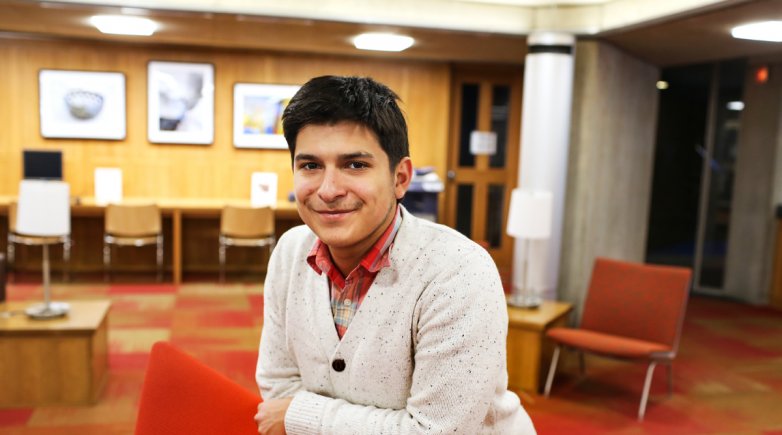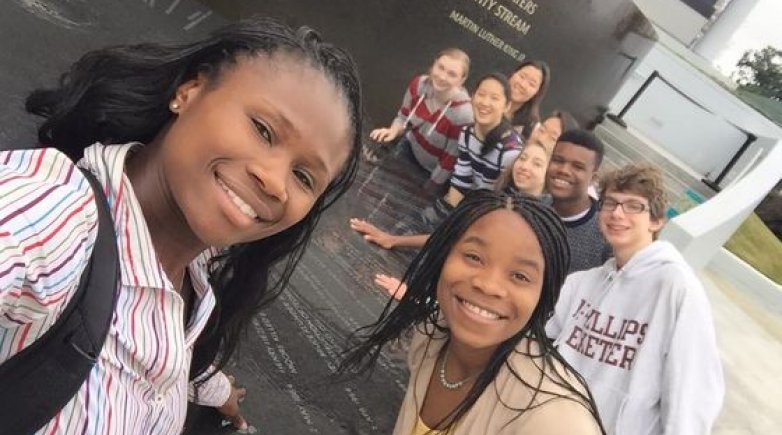Speaking Out: Students of Color Share their Experiences at Exeter
This is the first in a series of Bulletin articles that provides space for various members of our community to engage in ongoing conversations about identity, empathy and acceptance.
Christian Flores '18.
An Academy assembly on October 11 last year gave six students of color — Christian Flores ’18, Leena Hamad ’17, Livaslou Tanjong ’17, Nada Zohayr ’17, Kelvin Green ’17 and Adrian Venzon ’19 — a powerful platform from which to share their stories, not just with their fellow students but with Exeter’s faculty, administration, trustees, alumni and its wider community. But for the students and the school it wasn’t just about sharing perspectives: Behind each individual story lies a fervent hope that, by vocalizing these experiences, it will encourage others to participate and to recognize that every student at Exeter is part of the Academy’s collective narrative. The hope, too, is that this assembly, which was recorded and made available online (Exeter.gameonstream.com), will mark the beginning of something bigger.
While Exeter students are challenged academically on a daily basis, they are also learning — some for the first time — what living in a diverse community is like. Today, they are doing so in a national, even global, atmosphere in which difference is still not celebrated to its fullest extent, in which issues around diversity are too often divisive. With their act of outreach, of invitation, these students stood in front of their peers in the hope of creating a more unifying experience for everyone. From reminding us that, as Exonians, students have a strong common ground already — they are all here to learn, after all — to eloquently expressing how complicated individuals’ identities often are, they highlighted the challenges, the importance and the positive aspects of generating open conversations around race, class, culture and citizenship. At the same time, they showcased the wealth of experience, difference, intellect, generosity, honesty and curiosity that is at the core of Exeter’s community.

